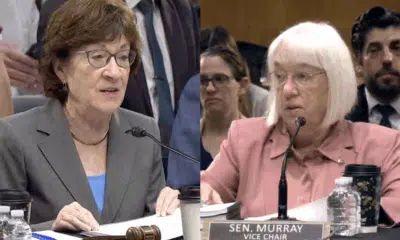(The Center Square) – Americans could soon pay higher prices for cars as a result of President Donald Trump’s new tariffs on passenger vehicles, pushing prices that were already out of reach for many even higher.
A new analysis from the Center for Automotive Research, a nonprofit, underscores the complexity of the automotive supply chain, noting that “the modern automotive supply chain is both global and complex, convoluting the seemingly simple question of the cost of 25% tariffs on the industry.”
“Automakers and their suppliers are often multinational companies with facilities spread out across the world, making it difficult to discern how much of a vehicle is domestically produced,” said Dr. K. Venkatesh Prasad, senior vice president of research and chief innovation officer at CAR.
One thing is clear: Price hikes are coming for every vehicle.
“All vehicles – whether produced or sold in the U.S. – would be affected by the 25% tariffs, as no vehicles are built with 100% U.S. domestic content,” the report noted.
Even before Trump’s auto tariffs – which extends to passenger vehicles and auto parts – many cars were too expensive for many Americans. The average price of a new vehicle in the U.S. is above $48,000, according to Cox Automotive. Real median household income was $80,610 in 2023, according to the U.S. Census Bureau.
However, more than 40% of new-vehicle sales by volume in 2024 were priced less than $40,000.
“These vehicles are particularly vulnerable to the new tariffs,” according to an analysis from Cox. “Our analysis suggests the 25% tariff on imported vehicles will apply to nearly 80% of vehicles priced under $30,000.”
The Center for Automotive Research estimated the average tariff cost per vehicle would be $4,239 based on the imported auto parts for U.S. produced vehicles. For imported vehicles, CAR estimated the average tariff cost per vehicle would be $8,722.
Altogether, the tariffs would increase costs for all U.S. automakers by $107.9 billion, according to CAR.
“The Detroit Three automakers would bear greater overall cost increases from tariffs on imported parts – affecting domestic vehicle production – than from tariffs on their imported vehicles,” CAR noted.
CAR said its estimates were likely low.
“CAR’s tariffs impact estimate is likely understated because of cross-border trade activity – common for parts but difficult to estimate on a case-by-case basis,” it noted.
Cox put it this way: “All roads lead to this fact: In the coming months and years, as new tariffs settle into place, vehicle prices in the U.S. are expected to increase.”
“Our expectation is that vehicles impacted by these tariffs could see prices increase 10-15%,” Cox noted. “In addition, given market dynamics, we also anticipate seeing at least a 5% increase in prices of vehicles not subjected to the full 25% tariff.”
Cox also said it expects production disruptions and production declines as a result of the tariffs.
“April and May may well be good months for vehicle sales, with consumers feeling an urgency to buy, even though loan rates remain close to 25-year highs and incentives are likely to shrink,” the report noted. “Production disruptions and declines could be a reality this summer, especially as automakers and suppliers work to align practices with the new rules.”
The Budget Lab at Yale came up with similar estimates. It estimated prices would climb by 13.5% on average, the equivalent of an additional $6,400 to the price of an average new 2024 car.





















































